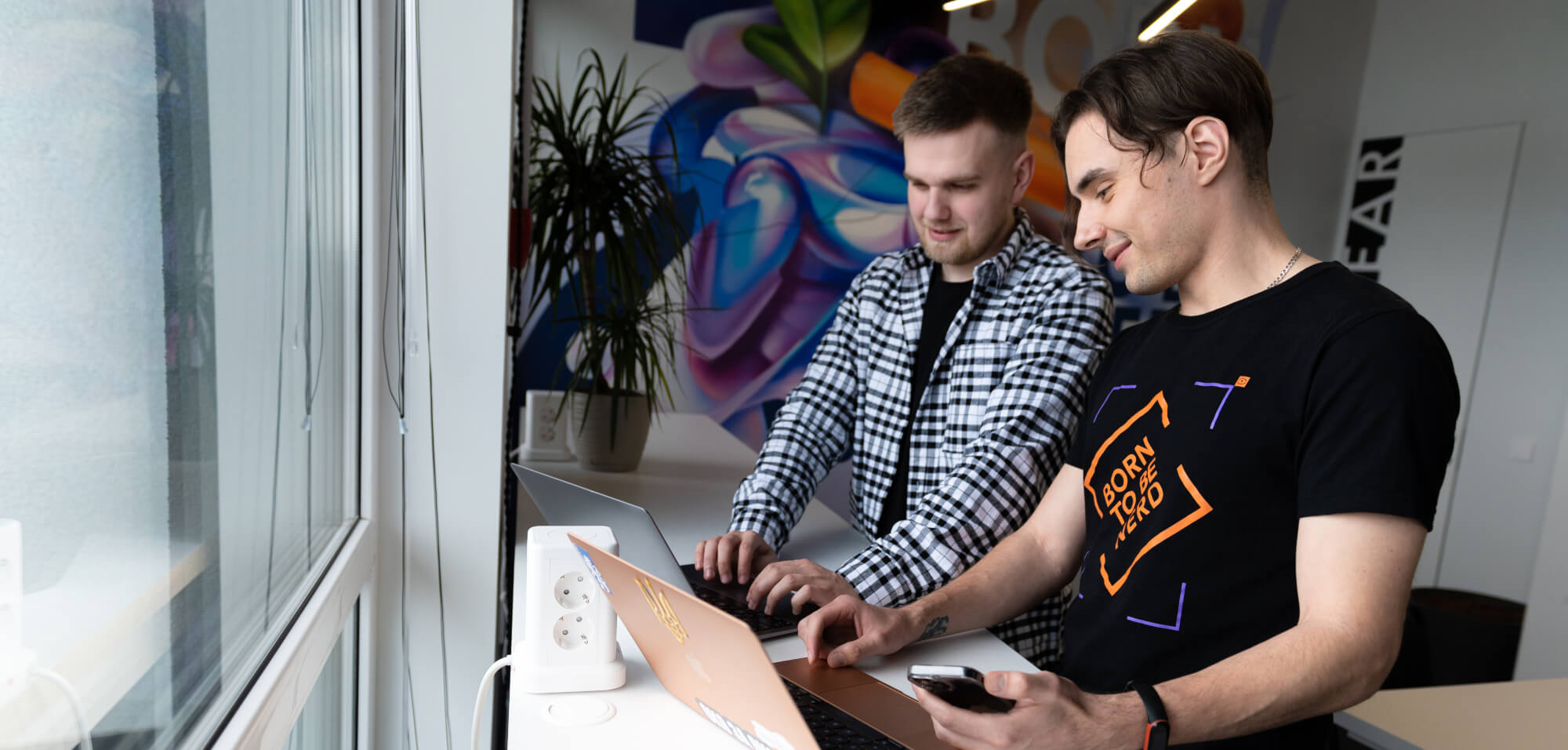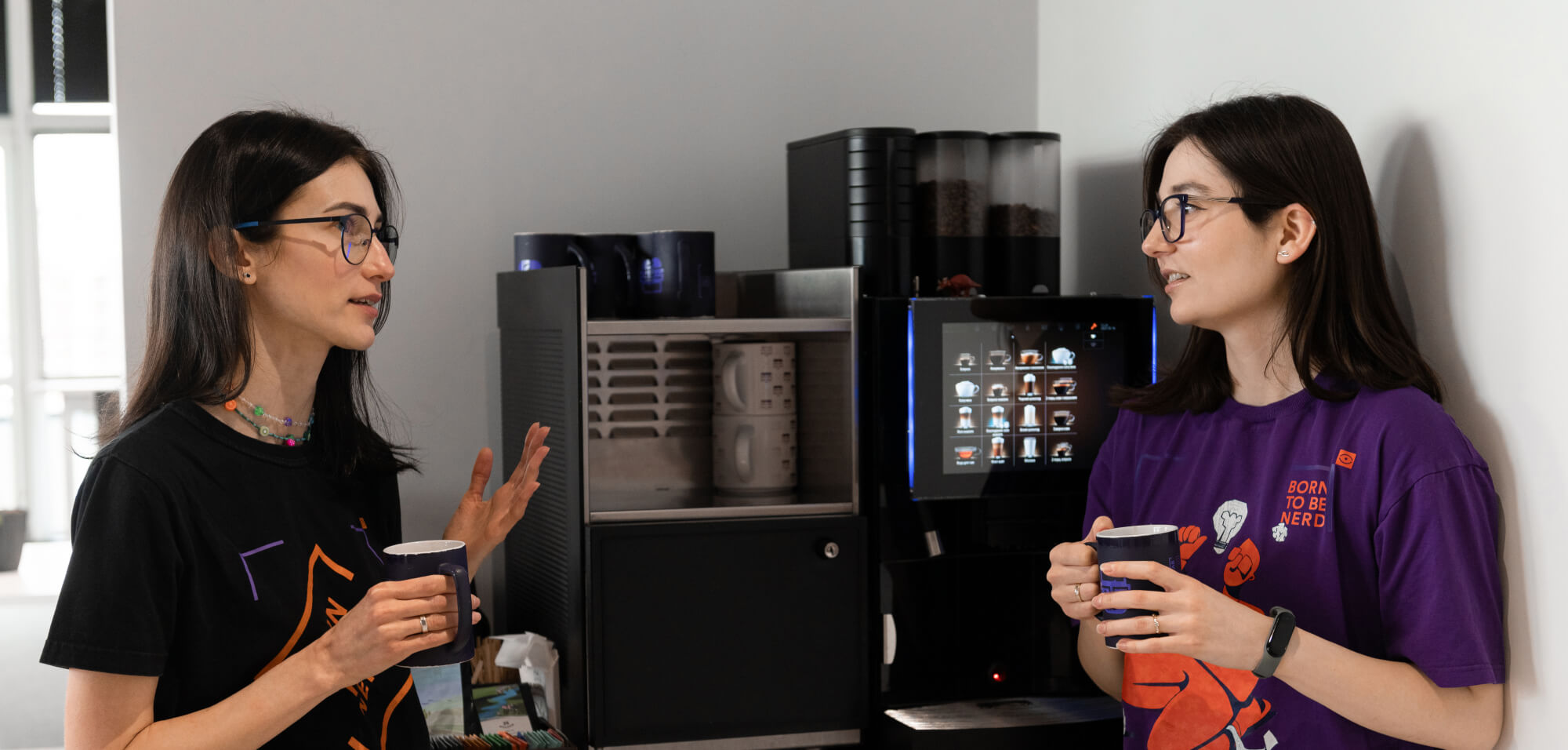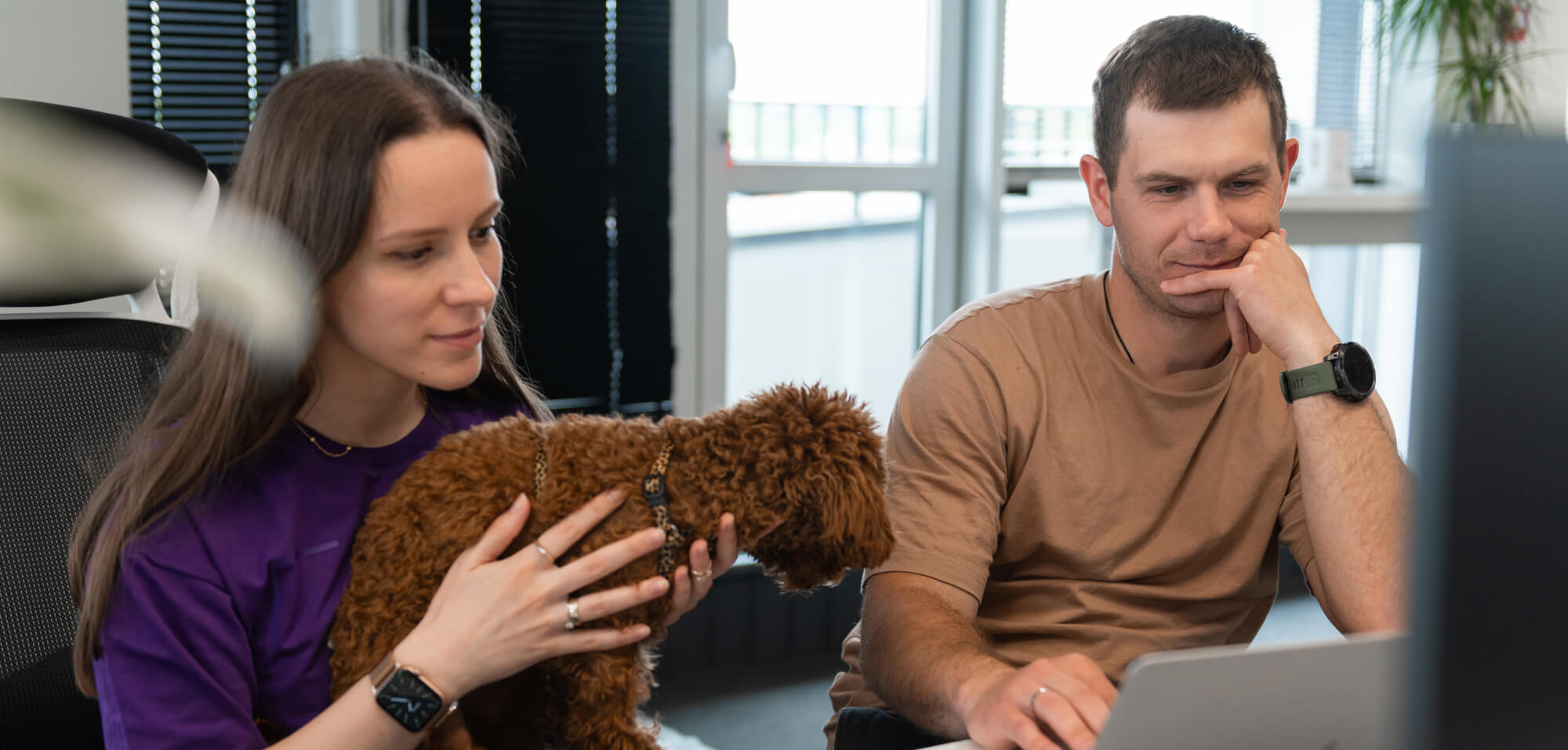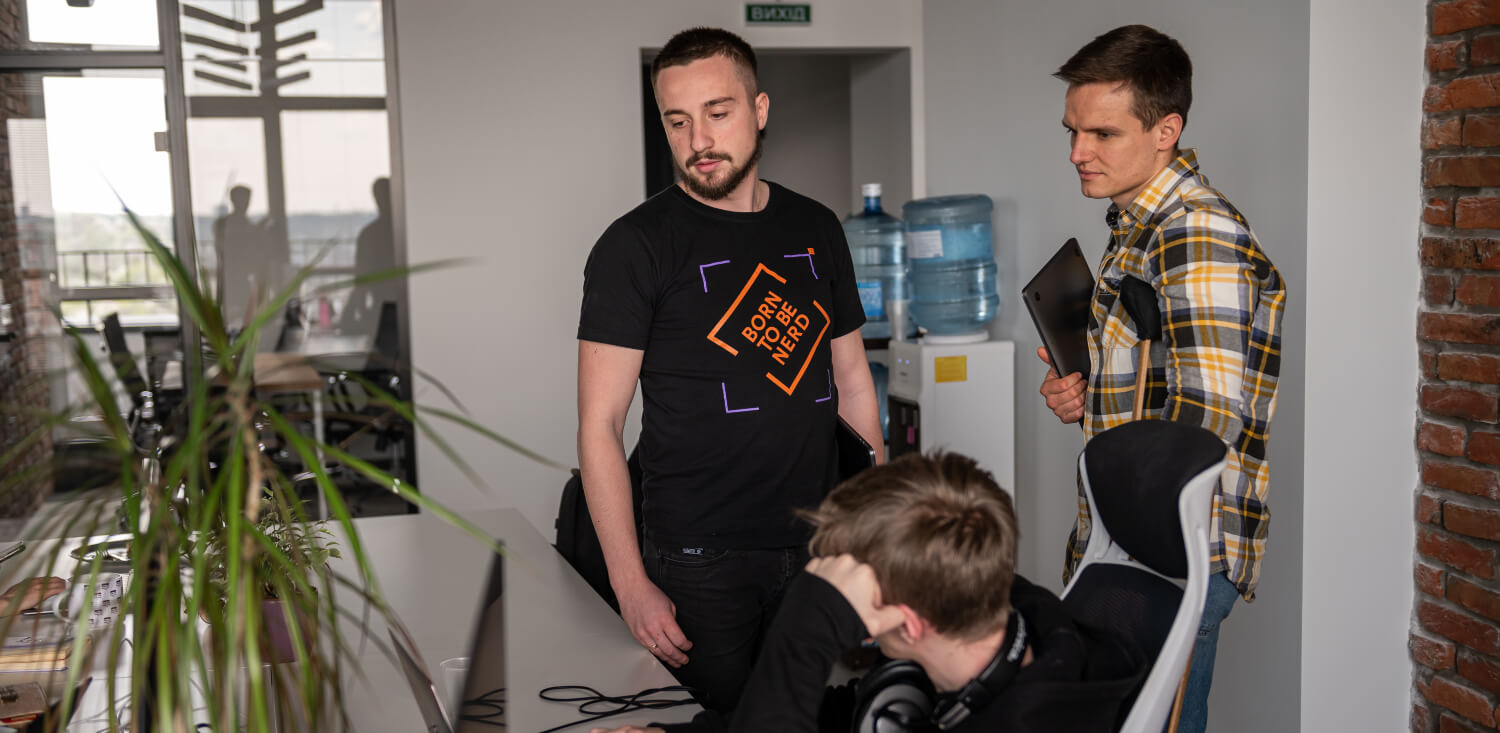От халепа... Ця сторінка ще не має українського перекладу, але ми вже над цим працюємо!

Team building in Project Management: Towards a non-toxic team collaboration

Serhiy Behan
/
PM
7 min read
Article content:

Introduction
You might think working on a project is all about being organized, hitting deadlines, and staying within budget. And while those aspects are essential, there’s something not so obvious but no less crucial to success: the human factor.
Have you ever spoken up and had people actually listen to you? It feels good, right? We all want to be heard. But have you ever dealt with those cranky colleagues who just ruin the entire office vibe? Cooperation requires more than expertise in your area, as projects involve people with different skills, personalities, and agendas. You should also know how to speak clearly, listen carefully, and smooth over conflicts.
In my six years in the software industry, I’ve juggled all kinds of roles — from newbie to team leader, task executor to task creator. In this article, I’d like to share my insights and suggest some ways to cultivate a supportive workplace atmosphere. Let’s talk about the importance of communication in teamwork!

See also: How to build an MVP for a startup before expanding into a full-scale product
Importance of a positive team microclimate
We all know how hard it is to negotiate different perspectives. But when negativity enters the equation, the challenge becomes even tougher, resulting in low morale and productivity. And disengaged team members are less likely to go above and beyond their job requirements.
Moreover, workers who rate their company’s culture as poor are 90% more likely to think about quitting. In comparison, those who consider their culture as average have a 72% chance of leaving, while those who rate it as good are only 32% likely to quit.
A positive team microclimate is here to make things better. It’s an environment where everyone can freely express their concerns or creative suggestions without fearing criticism. Everyone benefits when they can work together productively, share their best ideas, and reach common goals.
Sounds quite straightforward, but putting it into practice can be tricky. However, you don’t need to be a skilled diplomat. Let’s explore key elements of successful collaboration that help us at NERDZ LAB work well together and provide value to our clients.

Key elements to build a comfortable working environment
To foster a thriving work environment, prioritize key elements like reputation, responsibility, perception, and effective communication. You will get impressive results by investing extra effort in these areas.
Reputation and responsibility
Let’s start with reputation. For me, this point is all about responsibility. When asked about my feedback on working with a specific colleague, I always focus on their sense of responsibility, as it directly impacts how well they complete the assigned tasks.
Sometimes, your coworker might miss task deadlines, even if they set time estimates themselves. And then, instead of doubling down to solve the problem, they seek an escape route. In the end, teamwork suffers, and the individual’s reputation gets damaged. This does not benefit anyone and only leads to negative consequences. Taking responsibility for your commitments and actions is crucial.
Another way to enhance your reputation is by delivering added value. When working with a client or teammate, you can give your best effort instead of just doing the least what’s required of you. Finding your advice helpful, your clients and colleagues will spread the good word about you. And you’ll have a glowing reputation before you know it.
Building a good reputation takes time. Warren Buffett, a legendary investor, says it all: “It takes 20 years to build a reputation and five minutes to ruin it. If you think about that, you’ll do things differently.”
The rule is simple: your and your colleagues’ reputation adds up to your company’s reputation. So, if you prioritize your team and contribute to a great workplace, your company will attract both customers and job seekers. Small beginnings lead to big successes!

Perception
Up next, we’ve got perception. This term doesn’t have a concrete definition for a reason, as different people perceive the same thing differently, be it jokes, sarcasm, or technical terms. Ever wondered why?
Everyone has a unique perspective and life experiences, which shape how they interpret various situations. Viewpoint diversity is an excellent advantage for a company. Diverse teams can approach challenges from different angles, offering a wider range of potential solutions. Still, it’s essential to consider these varying perspectives when communicating with others to guarantee everyone is on the same page and feels welcome.
The other day, I stumbled upon a video on Instagram featuring an English-speaking guy working for a Ukrainian IT company. He was perplexed by the frequent use of anglicisms in his team’s everyday conversations. The guy spoke Ukrainian well but was a bit lost in the local IT lingo. Some words sounded downright hilarious to him, even if he understood them, as they took twists on his native words.
See also: The team extension guide: how to do it properly
In particular, he was puzzled by “followapity” and “checkapity” derived from “follow up” and “check up”. And actually, I have never really considered how these anglicisms might sound to a native speaker! This case shows how our cultural background and personal experiences impact our worldview. And while we might laugh at this case, significant differences in perception can sometimes lead to serious consequences. Misinterpretations can create misalignments within a team.
Talking about humor, it’s best to avoid jokes that could be considered inappropriate or insensitive to avoid any unexpected reactions or hurt feelings. Respect and tolerance can significantly improve the work atmosphere. It’s important to choose your words carefully—and speak up whenever someone’s careless comments upset you. Two-way communication is key.
It’s also crucial to be clear and specific when using technical terms. When you are concrete and avoid ambiguity, your colleagues will surely understand you better. On the other hand, do not hesitate to ask for clarification when you need it. It is especially true for new team members who may not be familiar with certain terms or professional jargon. Clear, easy-to-understand communication with plenty of space for questions always works best.

Communication
The importance of communication in a team is undeniable. It is a foundation for setting up work processes, building trust and mutual understanding, implementing changes, and managing problems proactively. Things might get shaky without it.
Feedback deserves special attention. Offering constructive feedback is truly a form of art. It needs to be helpful without being harmful and should gently steer your colleague in the right direction. A good ‘feedback sandwich’ is the way to go: start with a positive comment, give the critique, then end with another positive comment.
Want to improve communication with your coworkers beyond work-related topics? Spend time together in leisure activities like sports competitions or book clubs, establish humorous office rules, or explore common interests to talk about during water cooler chats. These fun activities can do wonders for your professional relationships.
In short, be open with your teammates. Keep them updated, give feedback often, and ask about their progress. Become their ally, and don’t wait for formal meetings to address issues or brainstorm ideas. Let’s look at the specific examples of how these project management best practices help NERDZ LAB.

Behind the scenes of the NERDZ LAB workspace
You know what I love about working at NERDZ LAB? Our values, as they’re the building blocks for everything we do.
We follow a Scandinavian model, prioritizing people instead of a strict hierarchy. We have the freedom to handle our workspace and schedule the way we want, unlike hierarchical structures that tend to give all the power and decision-making authority to the big bosses. Taking ownership of our work is important as it boosts morale and drives us to do even better next time.
In fact, when the full-scale Russian-Ukrainian war broke out, the Scandinavian model proved to be a true lifesaver. Strict hierarchies did not hold us back, which allowed us to adapt to changes and continue our business while helping our home country.
As I said, taking on responsibility and providing added value are key elements that can build a healthy working environment that benefits our clients and staff. It is beneficial for our company, too. Let’s look at what we get in return for acting on our values.
The NERDZ LAB’s culture attracts top talent. Our strong project management skills help us form solid professional relationships within our team and with the clients who commission IT staff augmentation services. Here is what they say:
- “The workflow was so efficient and effective that I couldn’t believe that working with anyone can be this easy. …Believe it or not, but I cannot think of anything that could have been done any better. There was no waiting time, communication was unbelievably smooth, a lot of initiative on the NERDZ LAB’s side, customisation, personal approach, and just a wonderful working atmosphere,” – Sandra Garstka, Project Manager, TNP Fiscaaladvies.
- “Their willingness to let their team effectively become part of our team stands out. Their openness to collaborate and communicate quickly and freely is also great. They’re always willing to go beyond the call of duty,” – Director, Development Consultancy
- “Dev skills, project management and organisation, determination and focus. Our project coincided with the start of the war and the team were resilient. It was very impressive,” – Founder, Regulation Tech Company.
Check out other reviews we’ve received on Clutch! These testimonials prove we’re on the right track. Our company culture, built on the principles of clear communication and a strong sense of responsibility, allows us to deliver better results for our clients.

Conclusion
Teamwork is a huge part of our professional lives. And to be honest, how much we enjoy working with our colleagues really comes down to what we personally prefer and expect.
Be open-minded and respectful to the opinions of others, take ownership of your responsibilities, lend a helping hand to new team members, and prioritize clear and open communication. All these actions rank high in effective project management, at least in our team.
And what strategies have you been using to cultivate positive team dynamics in the workplace? Connect with us on Instagram (UA / EN) and Linkedin. We’re curious to hear your thoughts!
Get more insights:
See all

Anastasia Andon
/
Brand Marketing Manager
— 7 min read


